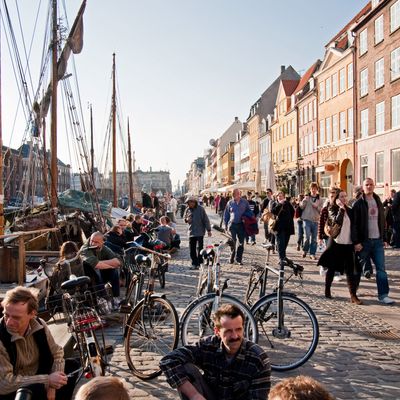
Denmark is always at or near the top of those Happiest Country on Earth lists, and it has been for 30 years. As a tongue-in-cheek article in the British Medical Journal noted, that’s despite the country’s lack of sun or warmth, and a cuisine that could be “politely described as unmemorable.” Within Europe, as their high life-satisfaction scores would indicate, they are perceived as smug and often intoxicated. “A reviewer of our paper suggested that one reason that Danes seem smug may be that they were drunk when they participated [in surveys],” the BMJ says.
In what must be an attestation of that smugness, Danish culture minister Bertel Haarder put out a call to identify the values that make his tiny Scandinavian utopia so magical. The ‘Denmark canon’ received 2,5000 suggestions, cut those down to 20 and put them to a vote. The Local, the English-language blog, reports that over 325,000 Danes — a population greater than all but one Danish city — voted, revealing the values that form, in Haarder’s estimate, the country’s “common cultural DNA.”
You can head to the Local for the full list; here’s a few of the most telling ones, with the Ministry’s description:
• Trust: “The Danish culture of trust is based on an expectation that one’s fellow citizens and public institutions are reliable.”
• Welfare society: “In the Danish welfare society, residents enjoy a high level of protection against social and physical risks and benefit from of a range of public goods.”
• Association activities and volunteerism: “Associations constitute a basic way of organizing communities throughout Denmark.”
Each of these sheds a light on the American condition circa 2016. Trust is in the gutter in the U.S.: 20 percent of Americans trust the government, 32 percent say they trust the media. Denmark also seems to belong to the same class of countries where the state is an expression of love of country, like France — whereas in the U.S., the people who self-identify as patriots aren’t really into the whole government thing. Lastly, America is longing for more communal ties; in 2014, a 1,500-person survey found that 25 percent of respondents didn’t have anyone they could talk about their personal problems with, a mark that doubles if you take away immediate family.
Yes, as Jenny Anderson notes at Quartz, Denmark isn’t always “high-minded,” and it’s irresponsible to extrapolate too many civics lessons from a tiny, homogenous socialist state to a vast, diverse country like the U.S. But one has to think: What if the U.S. had a common culture of volunteerism? What if institutions were better trusted? A little hygge wouldn’t hurt, too.




